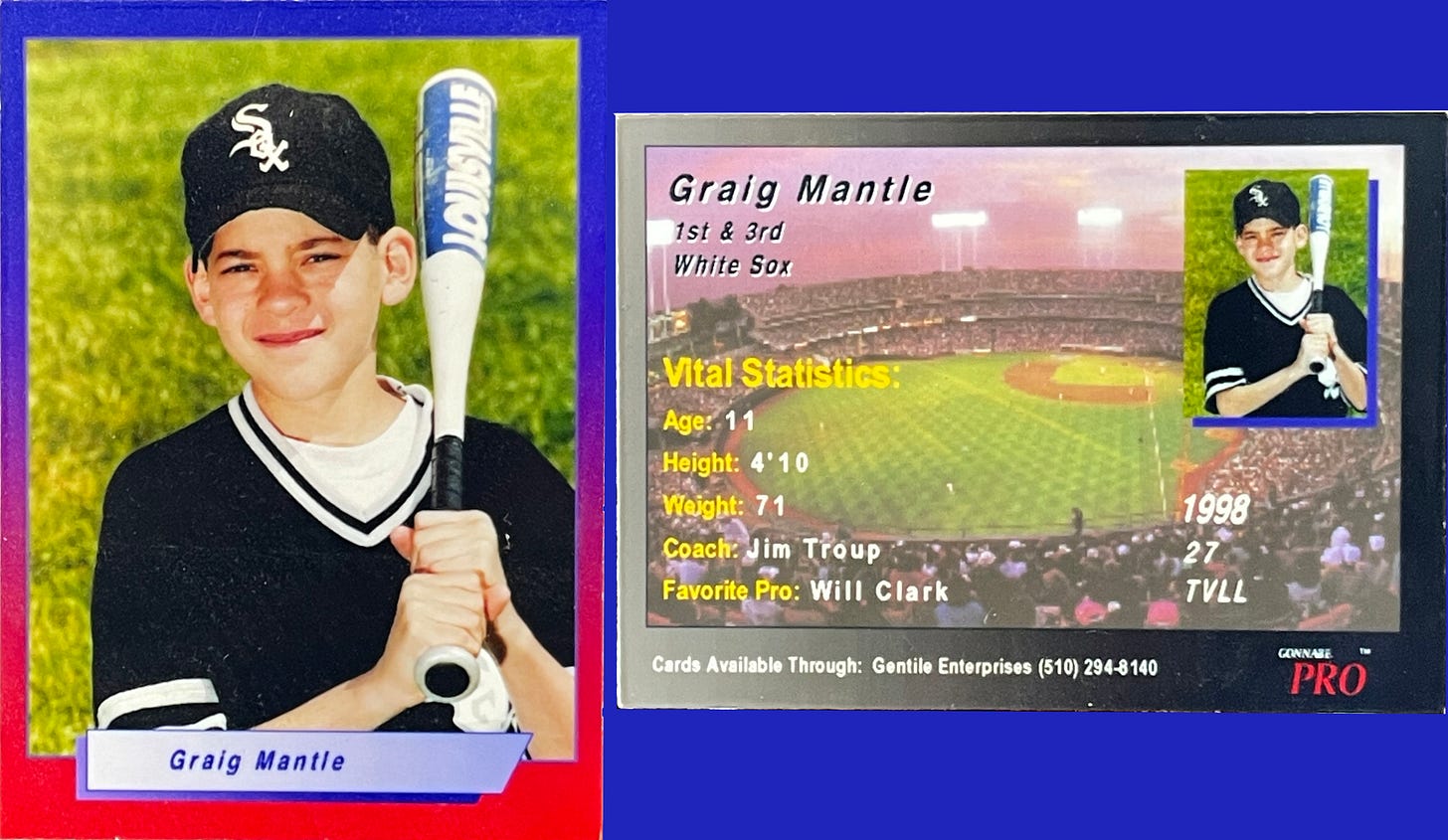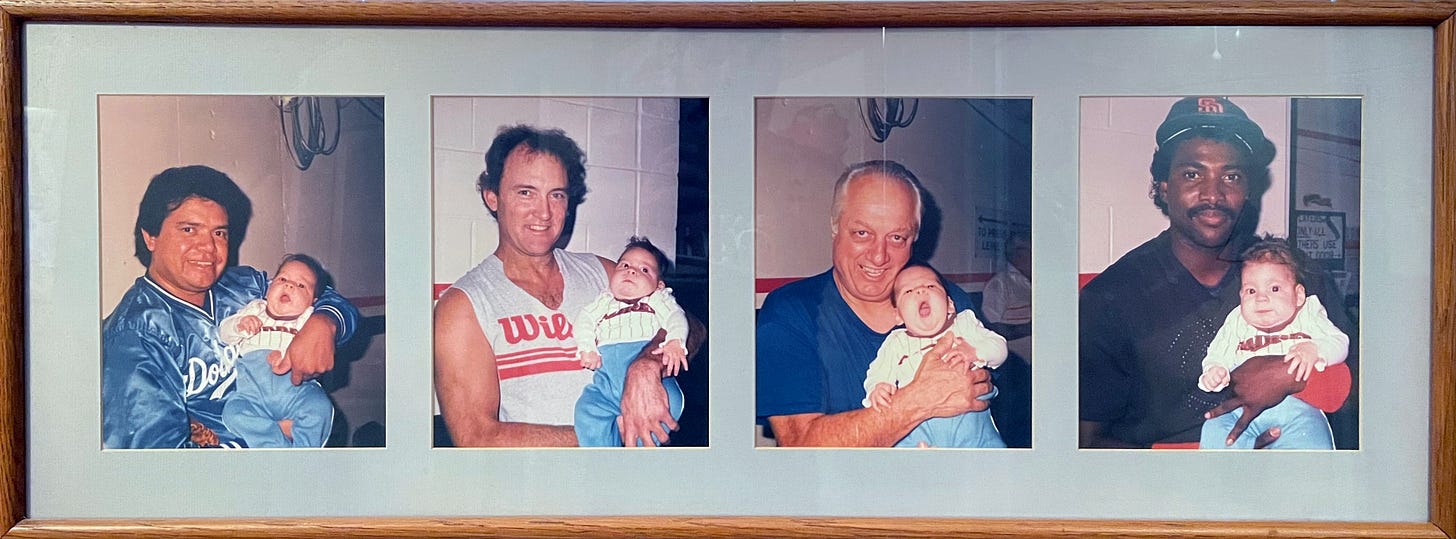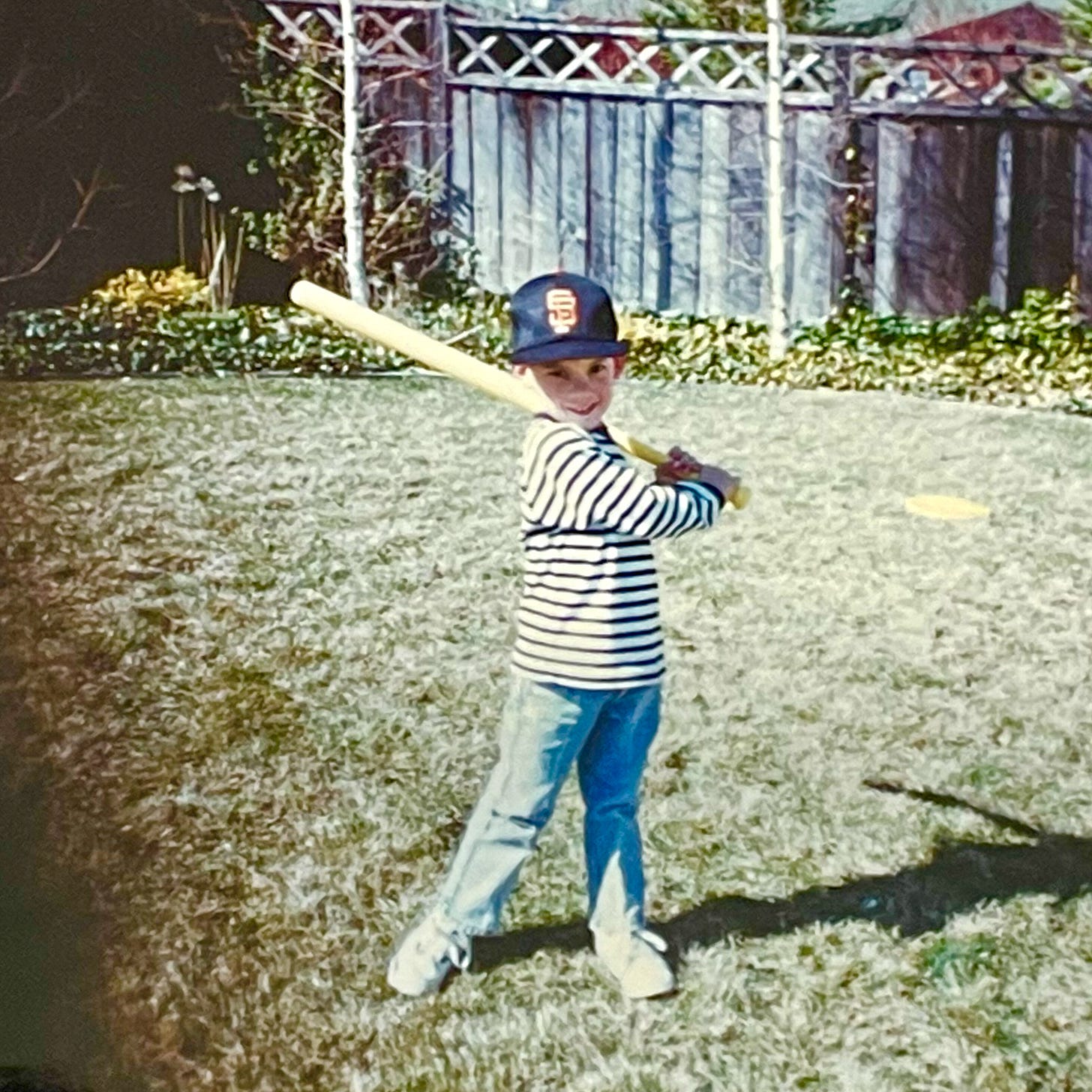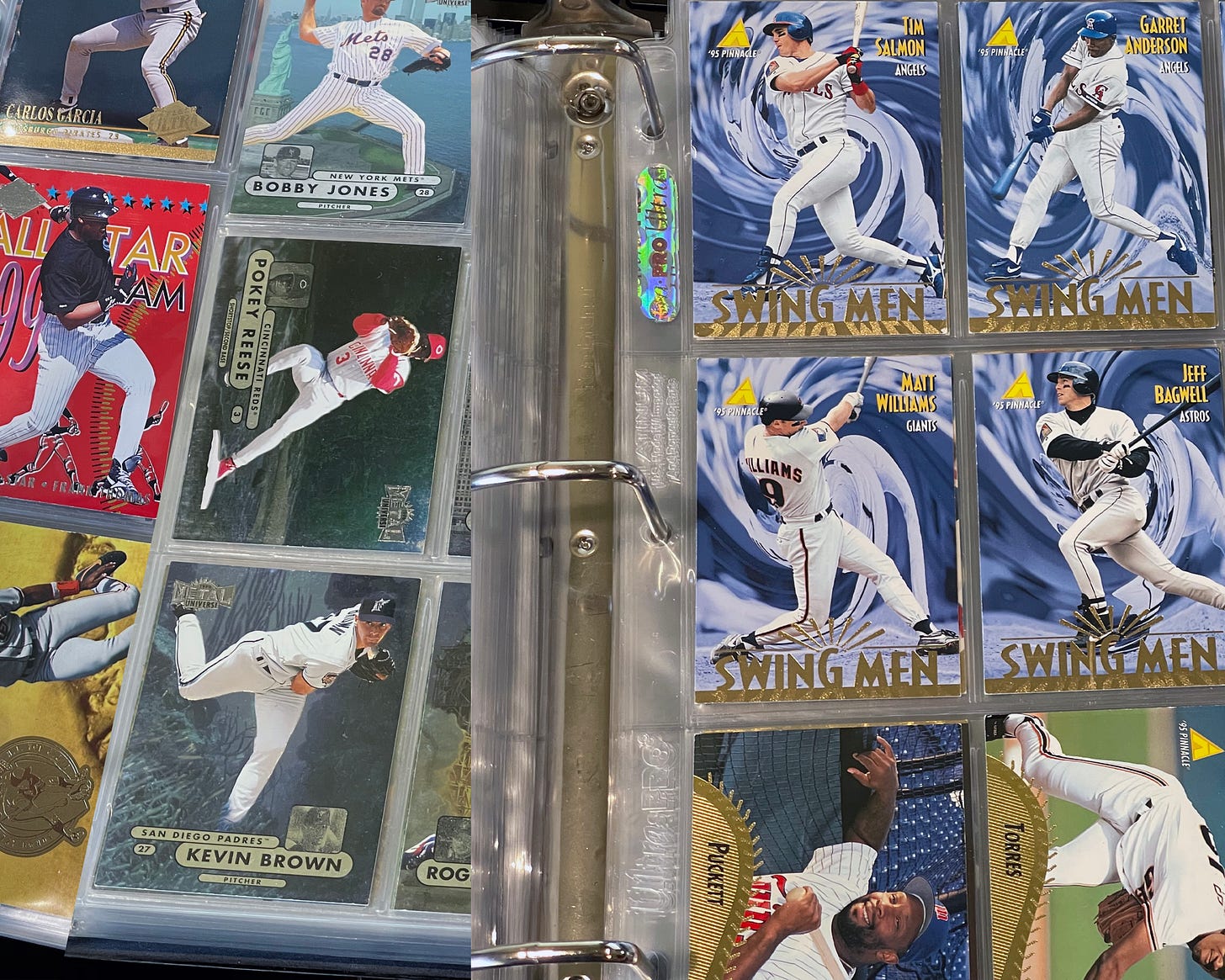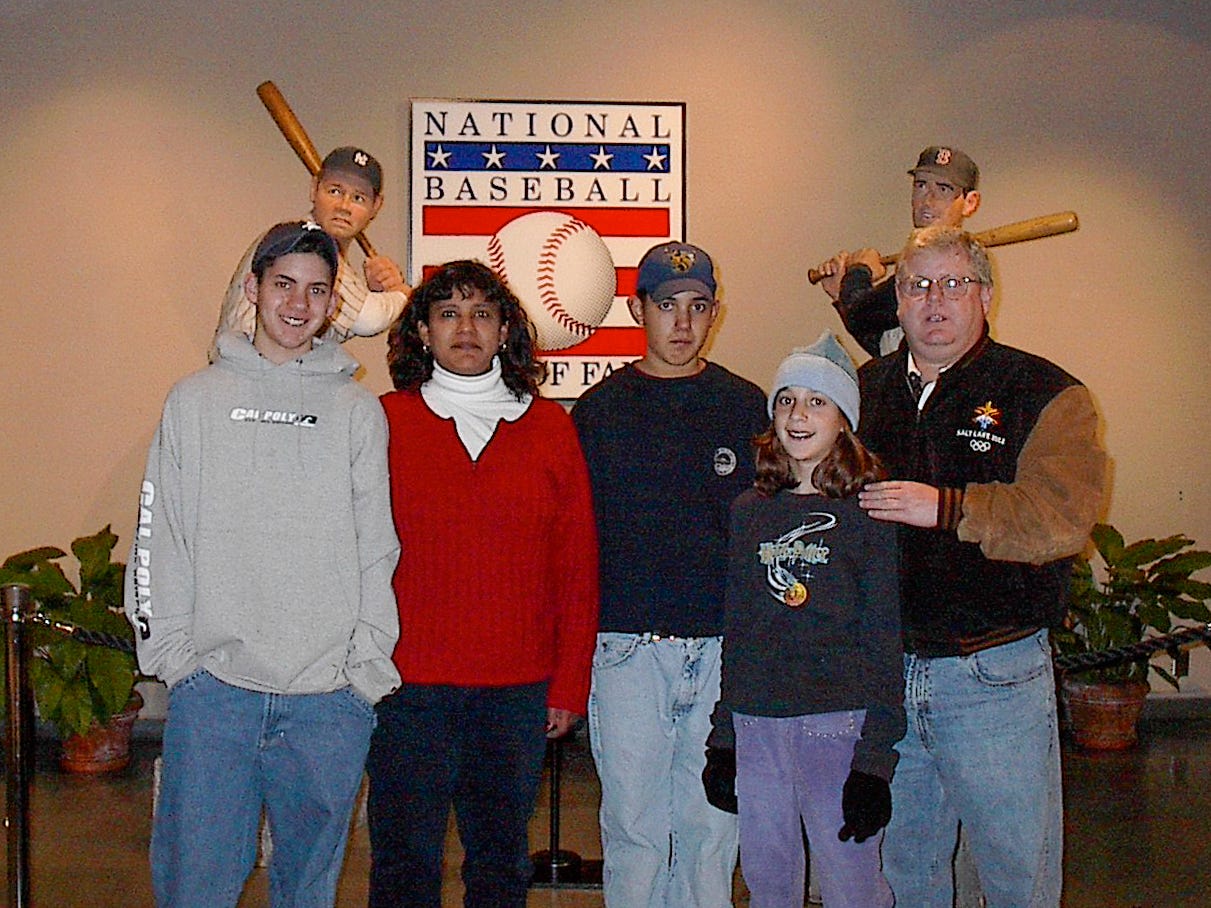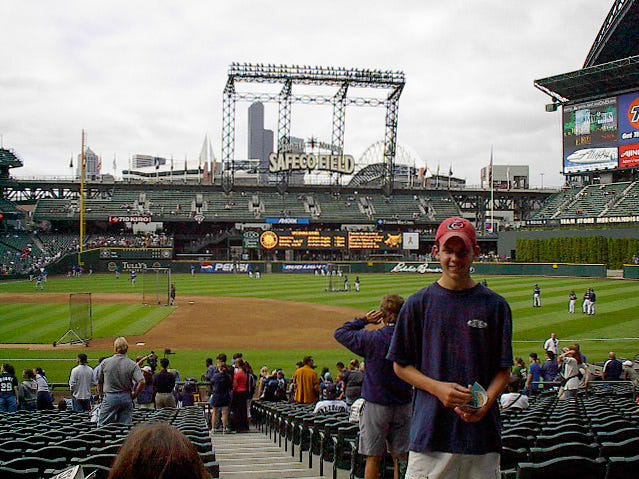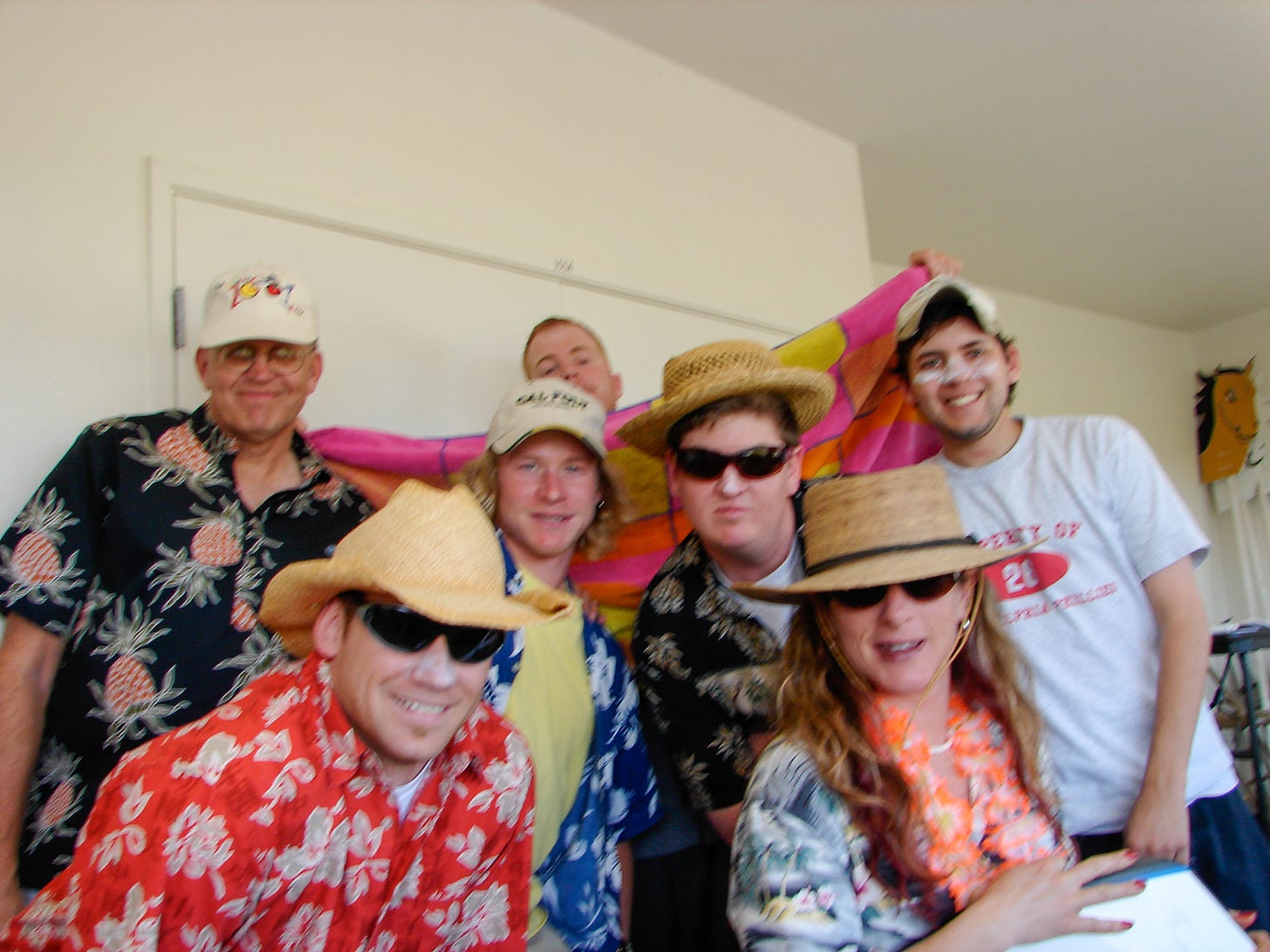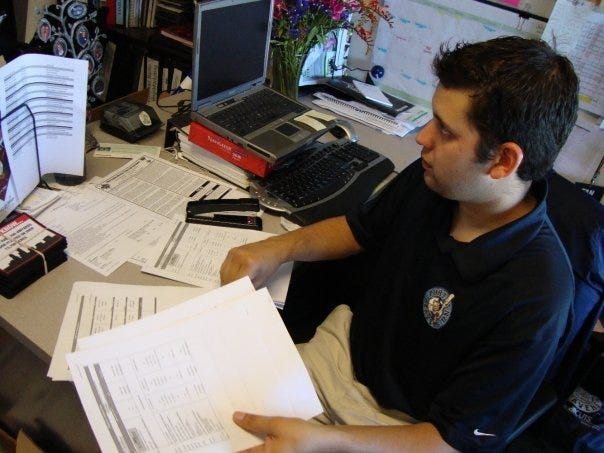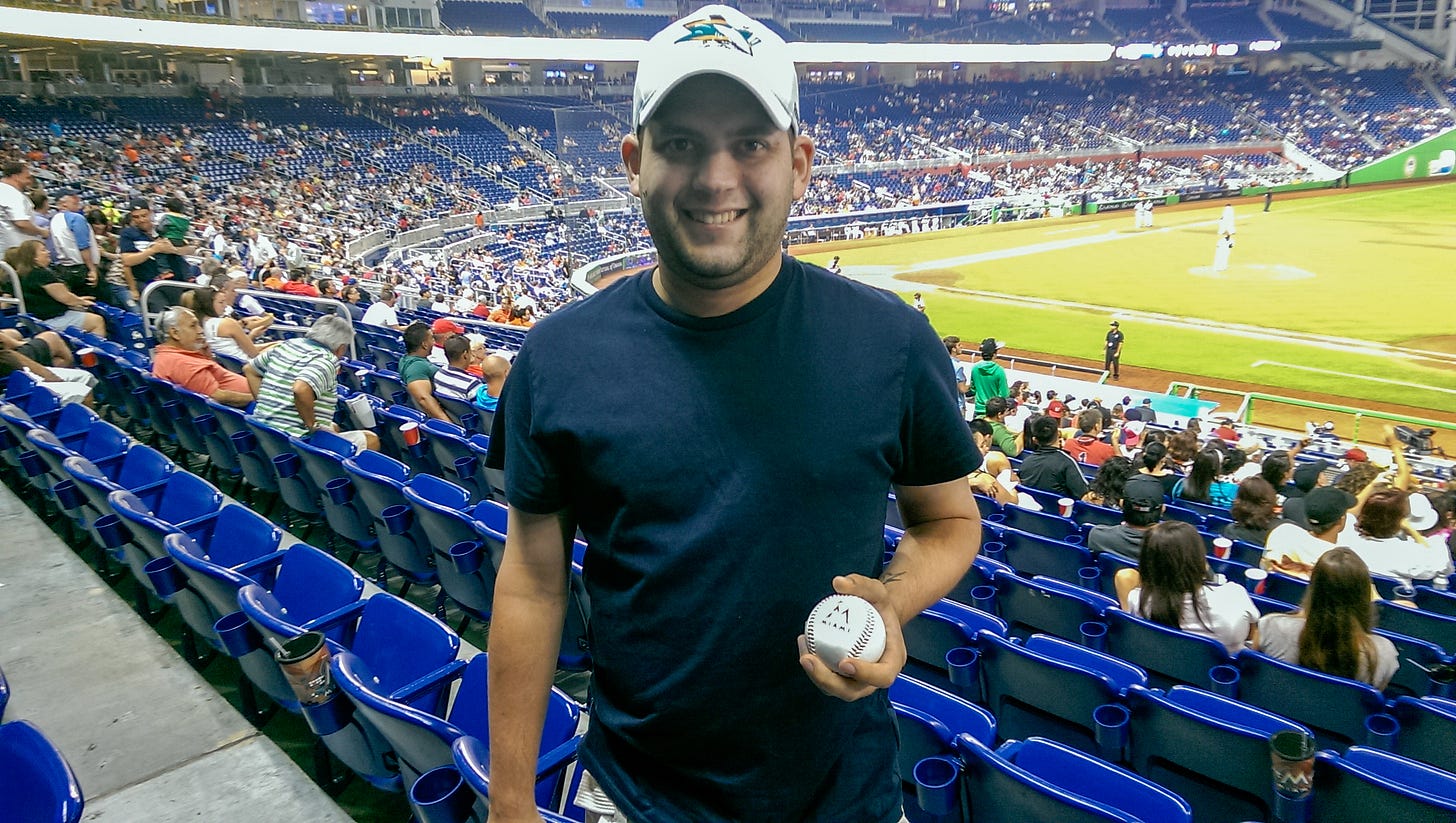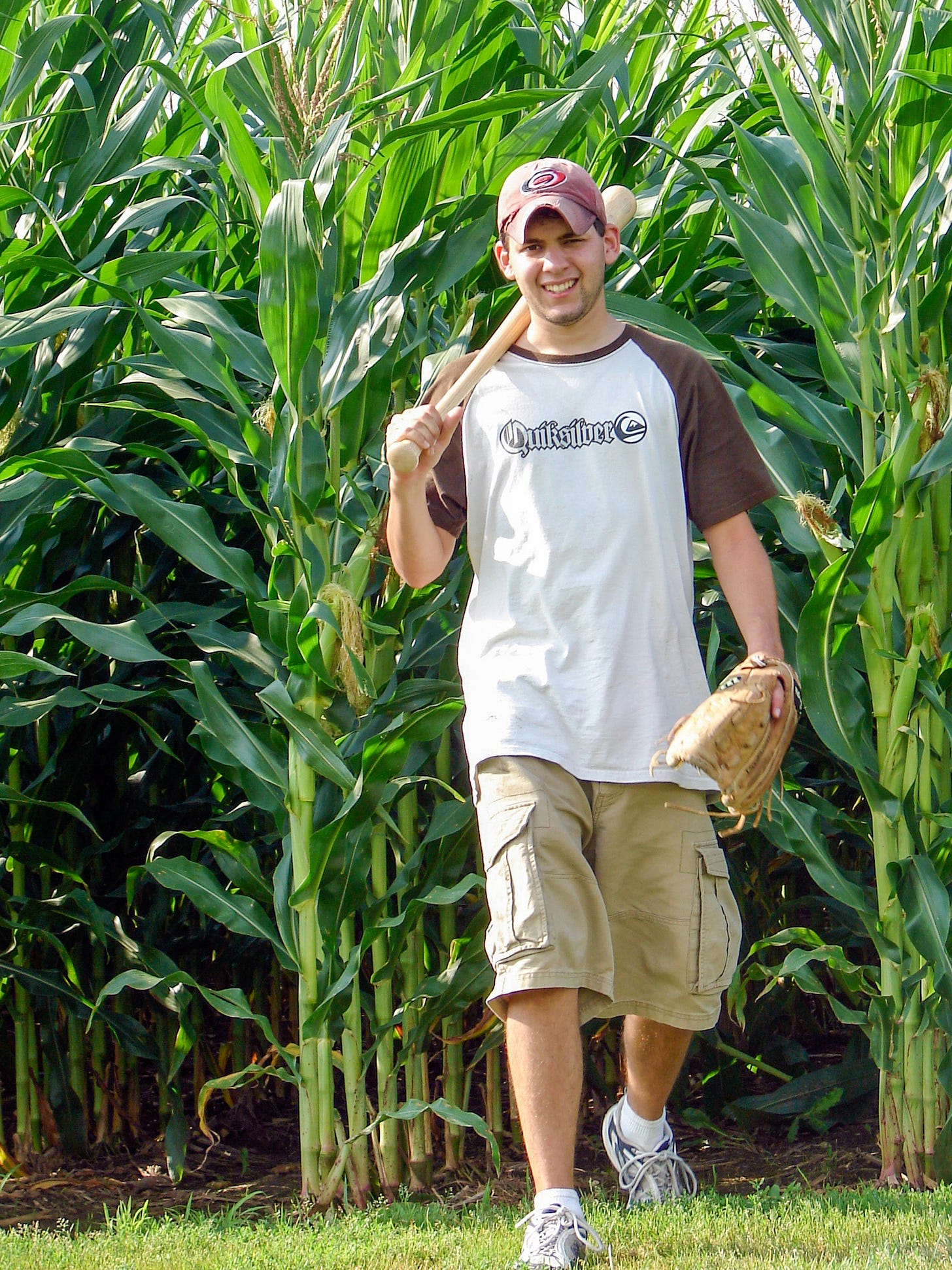Consider this my cover letter and baseball resume. I wasn’t born on a baseball field, but it wasn’t long before I was in the locker rooms beneath Jack Murphy Stadium. There might be more baby pictures of me sitting on the laps of Tommy Lasorda, Graig Nettles, Fernando Valenzuela and Tony Gwynn than with actual family members.
From there, my childhood years revolved around baseball. Little League every spring and sandlot games in the neighborhood cul-de-sac the rest of the year. I enjoyed Little League, but nothing beats pickup games with friends on some makeshift diamond. February practices on a rain-soaked field and 8AM games when the fog was so thick you’d have to blow the horn from the dugout just so the right fielder knew the inning was over were one thing. But green grass and sunny skies from 10AM until 9PM, diving into bushes for fly balls, arguing about how fast a ghost runner should be, and chasing the dog around when she snagged a sharp ground ball, that’s what I loved most. I remember one summer my brother and I played two-vs-two against a set of brothers from the other end of the neighborhood. One fielder, one pitcher, ghost runners only move one base at a time, hits were only allowed to the pull half of the diamond and batter called the strike zone. We had a seven-game series we never finished. It’s still tied at 3 games apiece, but the school year and hockey season brought the Blackhawk Classic to an inconclusive end.
On those rare rainy days in California, we’d just hang out inside sorting our baseball cards. I’d sort them by year, by company, by team, by player. Just continually sliding the cards in and out of the sleeves in a constantly changing order. My friends and I would take every chance to get a ride downtown to the card store for new packs. Some summer days I’d just ride my bike the seven miles over to spend some allowance. This was when card companies were popping up like internet startups in the late nineties, so there was also some new gimmick to win over our business. There were Topps and Upper Deck, of course. But as a 10-year-old I was in love with the cool new designs like Fleer Metal or Topps Stadium Club or Pinnacle. We’d have our birthday parties at Talkin’ Baseball and come home with grab bags full of loot. I still stop there anytime I’m in Danville. It was my first 401k. Those cards were going to make me rich when Marty Cordova and Tim Salmon turned into Hall of Famers. I remember one lengthy trade negotiation with Jason, six houses down the street, with him trying to get an Ivan Rodriguez out of me for a rookie Juan Encarnacion. In the end, Jason had convinced me that yes, this Juan Encarnacion rookie card would be the down payment on my summer home in 25 years. He ended up having a solid but unremarkable career and did win a World Series with the Cardinals, but I’m not sure that card would even buy me a postcard of my summer home today.
We mostly went to A’s games. My dad preferred the Oakland Coliseum to freezing July afternoons at Candlestick Park, even though my favorite player of all-time is Giants legend Will Clark. And we’d still frequently make summer road trips to San Diego for Tony Gwynn and the Padres. Every season before Opening Day, my dad would toss me a road atlas and the edition of the newspaper that had the entire schedule for every team and tell me to plan a road trip. I’m pretty sure he wanted just a small, 3-4 stadium regional trip and every year I went for the full 28-team odyssey, getting more excited when I could expand that to 30 teams in 1998. My baseball road-trip planning talents are definitely top 10 in the nation.
It was perfect timing that my friends and I got our licenses in 2001 and 2002. We were parking for free in the BART lot and buying upper deck tickets to the Oakland Coliseum (then called Network Associates Coliseum, hilariously shortened to NetAss Coliseum, because why not). We were there for the entire run of Moneyball version 1.0 from 1999-2004. You had the Big 3 of Tim Hudson, Mark Mulder and Barry Zito. The heartbeat of the team in Jason Giambi. A farm system that kept producing Rookie of the Year candidates like Ben Grieve, Terrence Long and Bobby Crosby. The steady production of Gold Glover Eric Chavez. The reckless abandon of Eric Byrnes beelining into the bullpens for foul balls. A group that produced two MVPs and a Cy Young (that easily could’ve been three or four Cy Young awards if Pedro Martinez was in the National League). I’ll post about the A’s another time, but being able to go and watch this team every summer in that golden California sun for a fraction of the cost of a Giants game at Pac Bell Park… well there’s a reason we look back on those times fondly.
I didn’t take a break from baseball in college either. Most of my friends freshman year were made thanks to watching or talking baseball. I ended up working part-time for the athletic department, spending most of hours there in the baseball and softball press boxes working the scoreboard and stadium experience. And the days I wasn’t working the games, I was taking pictures of them for the Mustang Daily as a photographer. After my second year in college, three friends and I went on a road trip to try to see every baseball stadium. We got to 26 MLB parks and a few minor league parks in about six weeks.
I graduated and took an internship with the Portland Beavers, who in 2009 were the AAA team of the San Diego Padres. I was an unpaid promotions intern from January through the end of the season in early September. The actual promotions work had some rough days, like being the substitute mascot, Lucky Beaver, whenever the other guy was unavailable and sweating buckets on a hot summer day on the turf of PGE Park. And the Rally Dancing on the dugout rooftops… I’m terrible at dancing so that went well. But I also got to see the daily grind that goes into professional baseball for the staff, the players and the diehard fans.
Once I decided it was better to be watching a game than working it, I got shipped to Utah for a year before moving to Scottsdale where professional baseball lives 10 months a year. Which, you’d think that would’ve pushed my game attendance level to new heights. Sadly, these were the dark ages. Apparently as an adult, you have to work for money. So by the time I got off work and made a quick pit stop at home to change and feed the dog, there was no time to make it downtown to Chase Field for a 6:40pm start. Weekends? Forget it. Especially when your girlfriend at the time isn’t a baseball fan, so you end up two hours away in Globe for three nights for the latest barrel race while camped in a cheap motel with scratchy sheets. As I said, dark times. My Ballgames Above Replacement Fan number was about a -1.2. But I did sneak away on a work trip to south Florida to check off a Miami Marlins game, meaning I’d officially watched a home game of every MLB team.
So where do I stand today? I feel I’ve hit a crossroads entering my age-36 season. But I’m optimistic. I’ve spent the last couple years increasing my baseball intake steadily. A few seasons of adult wood bat leagues, since my current goal is to hit at least one more home run before I turn 40 (much like Duane Kuiper’s goal). I’ve been able to go to more games, especially with the flexible work-from-home schedule, and even if I have to go solo, I always enjoy being at the park. I’ve dived headfirst into analytics, which I’ll get into later. And of course unwinding with MLB The Show. Plus now I can afford baseball cards again. I prefer buying hobby boxes and unwrapping the cards, while the cat loves batting the foil wrappers around the floor. I know I’m not alone as a baseball optimist and now my mission is to spread that optimism as best I can.



